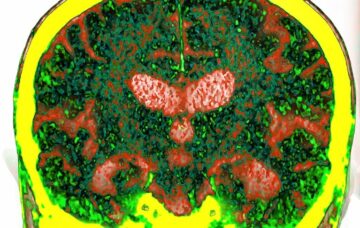Miryam Naddaf in Nature:
 An analysis of around 1,500 blood proteins has identified biomarkers that can be used to predict the risk of developing dementia up to 15 years before diagnosis.
An analysis of around 1,500 blood proteins has identified biomarkers that can be used to predict the risk of developing dementia up to 15 years before diagnosis.
The findings, reported today in Nature Aging1, are a step towards a tool that scientists have been in search of for decades: blood tests that can detect Alzheimer’s disease and other forms of dementia at a very early, pre-symptomatic stage. Researchers screened blood samples from more than 50,000 healthy adults in the UK Biobank, 1,417 of whom developed dementia in a 14-year period. They found that high blood levels of four proteins — GFAP, NEFL, GDF15 and LTBP2 — were strongly associated with dementia. “Studies such as this are required if we are to intervene with disease-modifying therapies at the very earliest stage of dementia,” said Amanda Heslegrave, a neuroscientist at University College London, in a statement to the Science Media Centre in London.
…By screening 1,463 proteins in blood samples from 52,645 people, the authors found that increased levels of GFAP, NEFL, GDF15 and LTBP2 were associated with dementia and Alzheimer’s disease. For some participants who developed dementia, blood levels of these proteins were outside normal ranges more than ten years before symptom onset. GFAP, a protein that provides structural support to nerve cells called astrocytes, has already been proposed as a diagnostic marker for Alzheimer’s disease2, as has GDF15. The latest study finds that people with high levels of GFAP in their blood are more than twice as likely as people with normal levels to develop dementia, and are nearly three times as likely to develop Alzheimer’s.
More here.
